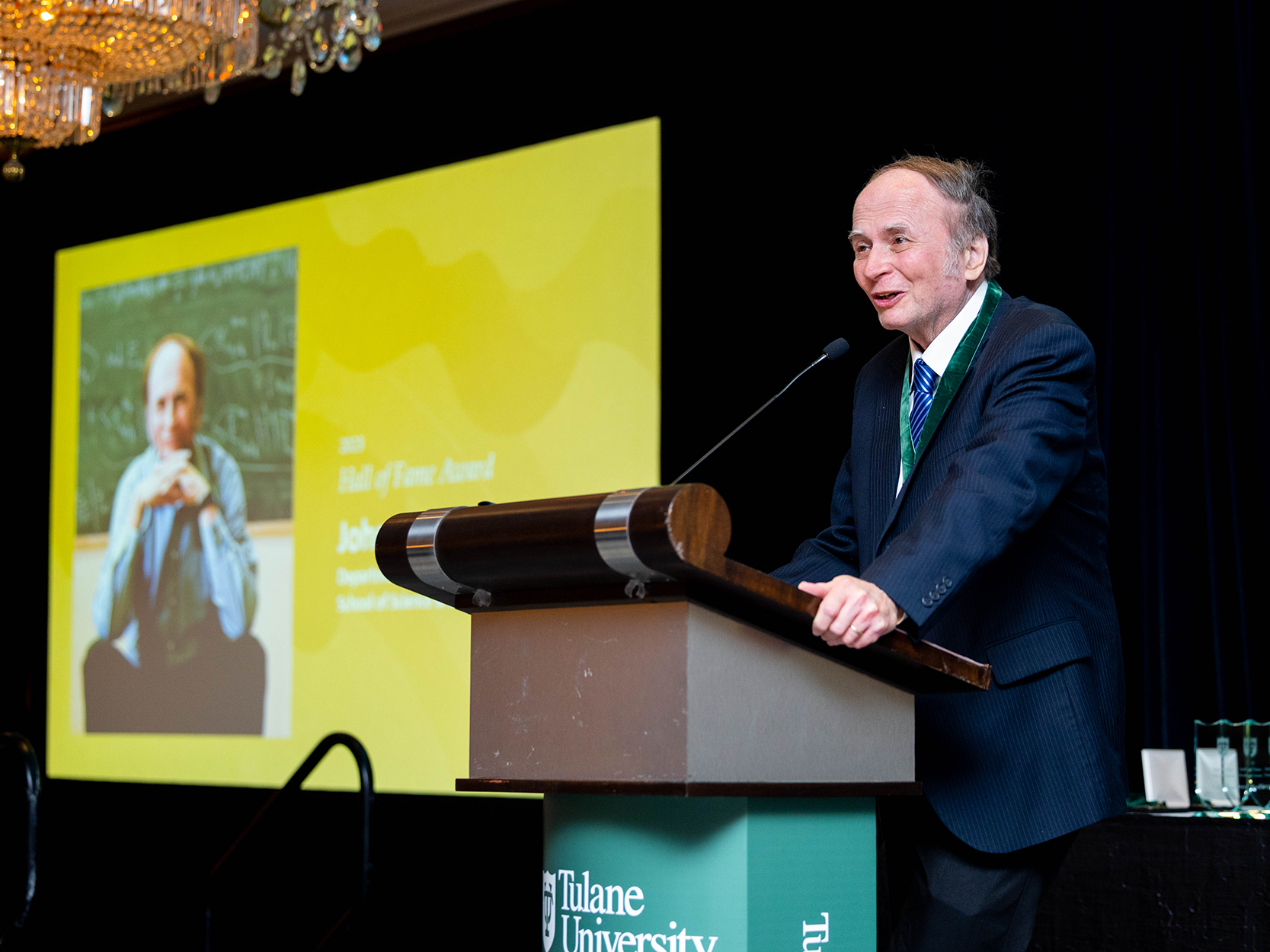World-renowned Tulane physicist wins prestigious Benjamin Franklin Medal
John Perdew, a professor in the School of Science and Engineering at Tulane University and one of the world’s most cited physicists, has been awarded the Benjamin Franklin Medal in Physics from the Franklin Institute. The Institute annually honors the greatest minds in science, engineering and industry. Its past honorees have included Frank Lloyd Wright, Marie Curie and Thomas Edison.
"It is hard to overstate the impact of John's research on modern chemistry and physics. And as a mathematician, I am awe struck by the creativity and elegance of his work. It is, in a word, beautiful, and I am thrilled to see him receive this wonderful recognition," said Tulane’s Senior Vice President for Academic Affairs and Provost Robin Forman.
Tulane President Michael A. Fitts lauded Perdew as a researcher and a teacher.
“John has been both an internationally recognized leader in his field and a professor known for the clarity and inspiration with which he teaches,” Fitts said. “He has remarked that his greatest thrill is when a student asks a question so good that it makes him see the subject in a new light.”
Perdew received one of only nine Franklin awards of this year, which he was given for designing methods of increasing accuracy to predict the physical properties of atoms, molecules, liquids and solids using the principles of quantum mechanics. This computational method has been widely used by researchers in a field known as density functional theory.
“It is such a high honor,” said Perdew. “I have to regard this award as not just for me, but for the whole field of density functional theory,” he said.
Density functional theory can be used for everything from developing better lithium-ion batteries to creating new semiconductors, which are used in most electronics. Without density functional theory, we likely would not have today’s smartphones. The theory was developed in the 1960s by Walter Kohn, and Perdew first encountered it as a postdoctoral researcher at the University of Toronto in the early 1970s, when the theory was gaining popularity among condensed matter physicists.
“People didn’t think it was very good,” said Perdew, on why the theory took nearly 10 years to gain momentum. “Even Walter Kohn didn’t think it was going to be very good. He just thought it would be better than what we were doing then.”
It turns out that this method was, in fact, very good. It provided Perdew and his colleagues with a much better approach to understanding the properties of solids – which include rocks, metals and anything with a fixed shape and volume. Perdew was hooked.
“Density functional theory is a simplification of quantum mechanics,” said Perdew, noting the calculations that he and other density functional theory researchers perform would not be possible if they had to use the equations that describe quantum mechanics; they would take too much computing power and time, even with today’s supercomputers.
The accessibility of the theory also makes the calculations useful to any researcher working on creating or studying materials.
“The users come from condensed matter physics, from chemistry, from materials science and engineering, from geology,” said Perdew.
Researchers from these other fields don’t necessarily need to understand the underlying physics of density functional theory to use the methods that Perdew and his colleagues develop.
The theory’s wide-ranging use makes it one of the most cited fields in physics. According to Google Scholar, Perdew himself has been cited over 430,000 times in his career.
Perdew first came to Tulane in 1977 as an assistant professor and later served two terms as chair of the Department of Physics before moving to Temple University in 2013. He returned to Tulane in 2023 and promptly won the Hall of Fame Award at the annual Research, Scholarship and Achievement Awards.
The Franklin Medal is particularly exciting to Perdew as a physicist because, as he said, “Ben Franklin was perhaps the first American physicist, although he probably wouldn’t have called himself that.”
The Franklin Institute will present the award to Perdew at a ceremony in Philadelphia on May 1. There will also be other events during the awards week, including a density functional theory symposium at Temple University.

